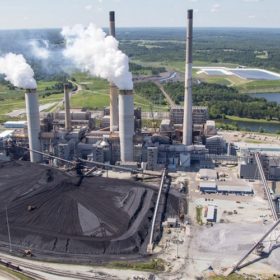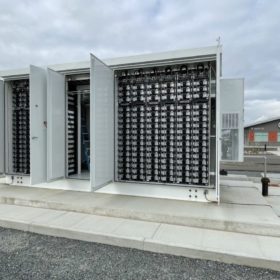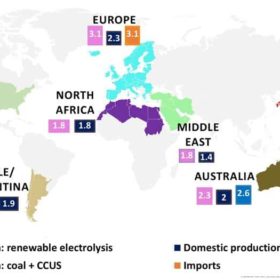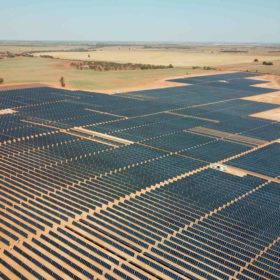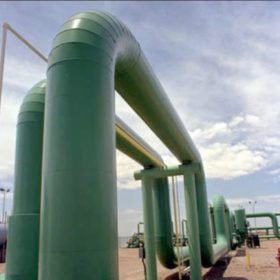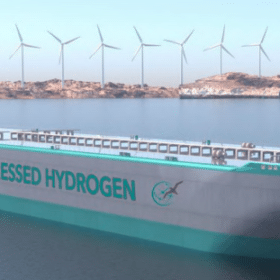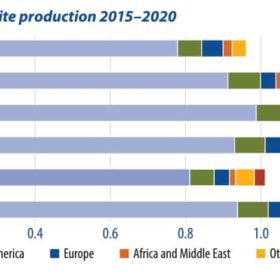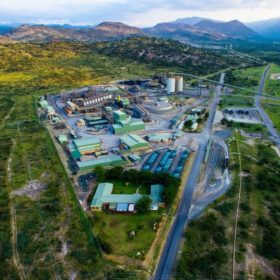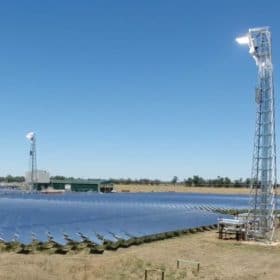Novel approach to turn coal plants into energy storage stations goes into testing
Funded by a United States’ Department of Energy grant, the project will evaluate Malta Inc.’s thermal energy storage system as a viable, scalable solution.
Sensor tech to detect fire in lithium-ion storage systems
The deflagration-prevention system combines automatically controlled door locks with a smart controller which manages signals from fire safety inputs such as smoke, heat, or gas detectors. It is applicable from 50 kW to multi-megawatt cabinets.
Geopolitical impact of long-distance transport of electricity and hydrogen
In an interview with pv magazine, Indra Overland, the head of the Centre for Energy Research at the Norwegian Institute for International Affairs, explains how long-distance electricity and hydrogen transport differs from that of fossil fuels. He says strong Europe-North Africa connections could prove the viability of cables to connect continents, and notes that integration between countries and regions will increase.
Powercor to unlock more than 1.3 GW of queuing large-scale renewable projects
Transmission is not the only way, proves network service provider Powercor with its new plan to help Victoria hit its ambitious emissions reduction targets, while considering the needs and sensitivities of regions set to host the state’s Renewable Energy Zones.
$2 billion blueprint to run a green hydrogen river through the Hunter Valley
Hydrogen is the word on everyone’s lips as the Federal Government champions hubs of no particular colour. Seasoned clean players such as Energy Estate are identifying greenfield opportunities for renewable energy and industry to meet.
How will you know it’s green hydrogen?
Thinking backwards from demand for green hydrogen, the Smart Energy Council identified that investors and customers will have to be able to trust the integrity of the product. Its world-first verification scheme, launched in late 2020 is gaining international traction.
Sunday read: the ‘other side’ of batteries
Graphite’s pivotal role in electric-vehicle battery technology is coming under increasing scrutiny. Graphite is almost exclusively produced in China, and while the processing of the mineral poses serious environmental issues, the alternatives appear costly. Ian Morse looks at what’s next for critical graphite supplies.
‘Hydrogen as a universal climate solution might be a bit of false promise’
Hydrogen and hydrogen-based fuels will not be able to move forward fast enough to replace fossil fuels and tackle climate change, according to a German-Swiss research team that claims direct electrification alternatives are cheaper and easier to implement. The scientists cite too-high prices, short-term scarcity and long-term uncertainty, as the main reasons for their skepticism, which has caused a stir in academic circles.
Green hydrogen supply chain concerns
With South Africa holding 63,000 of the world’s estimated 69,000 metric tons of platinum reserves – according to the Statista.com website – and Russia and Zimbabwe a further 5,100 between them, the European Commission has cited the metal as an example of a potential supply chain bottleneck that could handicap its grand plans for renewables-powered hydrogen production.
Vast Solar progresses plans for $600 million solar thermal plant
Australian renewable energy developer Vast Solar is calling for expressions of interest from contractors as it pushes ahead with plans to develop a $600 million hybrid solar thermal project in far western Queensland.
